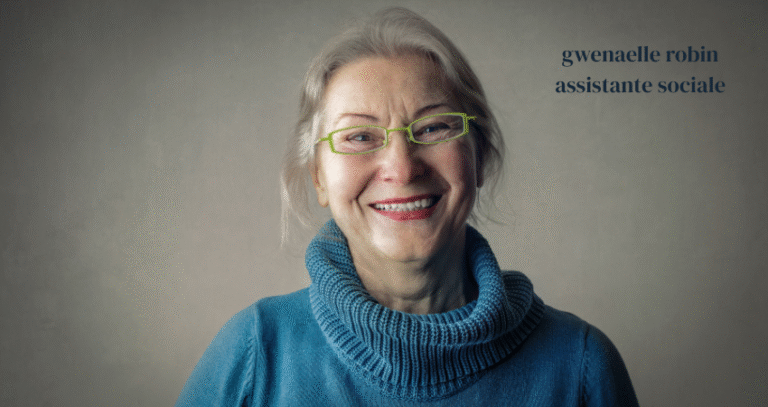Imagine walking into a crowded social service office, where emotions run high, and the weight of people’s struggles hangs in the air. Among the dedicated professionals stands gwenaelle robin assistante sociale—a name that resonates deeply in the French world of social work. Gwenaelle Robin isn’t just a title on a door; she embodies a mission to transform lives with empathy, expertise, and unwavering commitment. Over years of practice, she has become more than an assistante sociale—she’s a mentor, an advocate, and an innovator who redefines what it means to support those in need.
Born in France, Gwenaelle Robin’s career began like many others: driven by a passion to help. But what sets her apart is her holistic approach to social care. She goes beyond paperwork and routine visits. Robin dives into the complexities of each case, connecting deeply with people from all walks of life—mothers seeking help, the elderly fighting isolation, or young people lost in bureaucratic systems. Her work bridges gaps, ensuring that vulnerable communities are heard, understood, and supported.
In a field often overshadowed by stress and systemic barriers, Robin’s influence serves as a guiding light. Her name has become synonymous with resilience, compassion, and impactful change—qualities that inspire both new and experienced social workers alike.
Why Her Work Matters in Social Assistance
It’s easy to think of social assistance as merely administrative—filling out forms, processing benefits, or checking eligibility boxes. But Gwenaelle Robin shows us the soul of this profession. Her work matters because she places humanity at the center of every task, proving that real change starts when you see people not as numbers, but as human beings with unique stories.
Robin’s impact ripples through local communities: fewer families slipping through the cracks, increased awareness of social rights, and stronger networks of care. Beyond helping individuals, she advocates for policy changes, contributing to a more inclusive and responsive social system. Her approach reminds us why social work exists—not to fix people, but to empower them to reclaim their dignity and strength.
By highlighting the human side of social assistance, Robin’s legacy encourages everyone in the profession to look beyond paperwork and see the powerful potential of genuine connection and advocacy.

The Role of an Assistante Sociale
Understanding Social Assistance in France
In France, the term gwenaelle robin assistante sociale holds significant weight. It represents a professional committed to upholding social justice, protecting vulnerable populations, and promoting equality. Social assistance here isn’t just charity—it’s a right anchored in the values of solidarity and respect.
French social workers operate under a system designed to address a wide range of needs: from financial support and housing to health access and child protection. The landscape includes public institutions, local councils, and non-profits working hand in hand. Gwenaelle Robin stands out by navigating this complex network effectively, ensuring no one is left behind.
The role is both reactive and proactive. Social workers help people manage crises—like eviction or domestic violence—while also empowering them through education and preventive measures. Their mission? To build bridges between citizens and the social services meant to protect them. It’s about empowering clients to not just survive, but thrive.
Robin’s practice reflects this balance beautifully. Her work isn’t limited to the office. You’ll find her engaging with families in their homes, collaborating with local associations, and challenging policies that create barriers. It’s this hands-on, community-driven approach that makes the profession so vital—and her contribution so remarkable.
Key Responsibilities and Daily Challenges
Ask any gwenaelle robin assistante sociale sociale about their day, and you’ll likely hear a mix of urgency and unpredictability. They might start the morning preparing documents for a housing subsidy, spend midday in court supporting a young client, and end the day coordinating with mental health services for an elderly person. It’s a role defined by versatility and resilience.
Some key responsibilities include:
-
Conducting interviews and social assessments.
-
Developing personalized intervention plans.
-
Supporting families facing economic hardship.
-
Collaborating with doctors, teachers, and legal authorities.
-
Educating clients about their rights.
And the challenges? They’re plenty. Limited resources, high caseloads, and emotionally taxing situations often lead to burnout. Gwenaelle Robin addresses these challenges by prioritizing teamwork, continuous learning, and most importantly—self-care. She advocates for systemic improvements, recognizing that better conditions for social workers mean better outcomes for those they serve.
In mastering her craft, Robin reminds us that the real power of an assistante sociale lies not just in professional expertise, but in the ability to adapt, empathize, and advocate fiercely—even when the system feels overwhelming.
Gwenaelle Robin’s Approach and Philosophy
Empathy at the Heart of Practice
Imagine sitting across from someone who truly listens—not just hearing your words, but understanding your fears, your struggles, and your hopes. That’s the essence of gwenaelle robin assistante sociale Robin’s philosophy: empathy first, solutions second. It’s not about fixing people; it’s about walking beside them on their journey.
Robin believes that true change starts when clients feel seen and heard. She dedicates time to build trust, recognizing that every person’s story matters. Instead of imposing solutions, she co-creates plans tailored to each client’s strengths and needs. This approach transforms the typical dynamic of authority into a partnership grounded in respect.
Empathy doesn’t mean losing professional distance. Rather, it means balancing compassion with objectivity. Robin teaches that this balance allows social workers to remain effective while avoiding emotional burnout—a lesson often overlooked in training.
In practice, her empathetic style leads to higher client engagement and better long-term outcomes. People aren’t just receiving help; they feel empowered to make lasting changes in their lives.
Innovative Strategies in Social Work
Beyond empathy, gwenaelle robin assistante sociale is known for her innovative approach to social work. She integrates digital tools to streamline case management and improve accessibility. For instance, she encourages using secure messaging apps to stay connected with clients who face mobility or scheduling challenges.
Robin also collaborates across disciplines—working with psychologists, educators, and community volunteers—to create holistic support systems. She advocates for community workshops that teach practical life skills, financial literacy, and legal rights. These initiatives not only address immediate needs but also build resilience and independence.
Another hallmark of her strategy? Advocacy. Robin doesn’t stop at individual cases. She uses her insights to push for systemic changes—better funding, clearer policies, and inclusive programs that reflect the realities of those most in need.
Through innovation and compassion, Gwenaelle Robin shows that social work isn’t static. It evolves with society, and with professionals like her leading the way, it becomes a powerful engine for change.

Essential Skills to Learn from Gwenaelle Robin
Active Listening and Communication
Picture yourself in a conversation where the other person’s body language, tone, and words make you feel truly understood. That’s the type of active listening Gwenaelle Robin practices and teaches. It’s a skill that sounds simple but requires discipline, presence, and empathy.
Active listening in social work means:
-
Focusing fully on the speaker without planning your response.
-
Reflecting and clarifying to show understanding.
-
Observing non-verbal cues like posture and facial expressions.
-
Remaining patient, even when conversations are emotionally charged.
Robin complements this with clear communication. She avoids jargon and explains processes in everyday language so clients don’t feel overwhelmed. Her communication style creates trust, which is essential when dealing with sensitive topics like abuse, debt, or family breakdown.
These skills also extend to team dynamics. Robin models respectful dialogue with colleagues, encouraging open discussions and shared problem-solving. This collaborative spirit leads to creative solutions and a supportive work environment.
By mastering active listening and communication, social workers not only help clients feel valued—they also gain a deeper understanding of each case, leading to more effective interventions.
